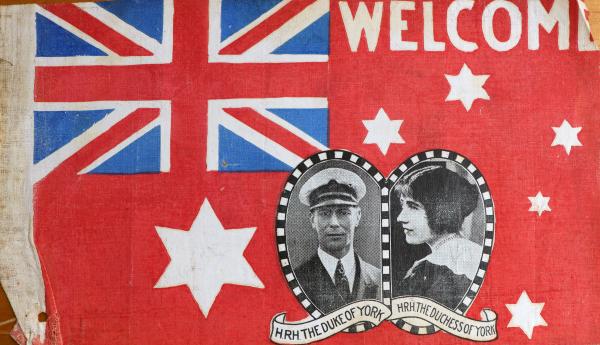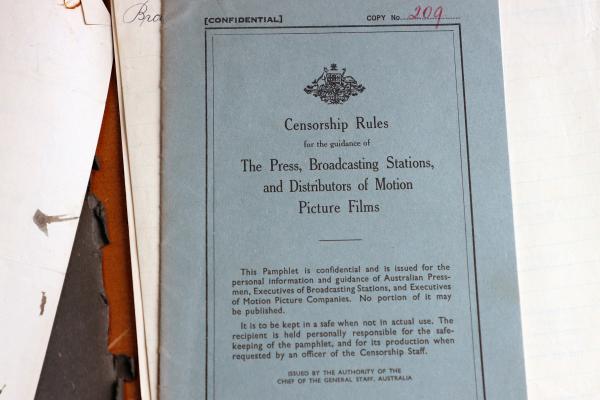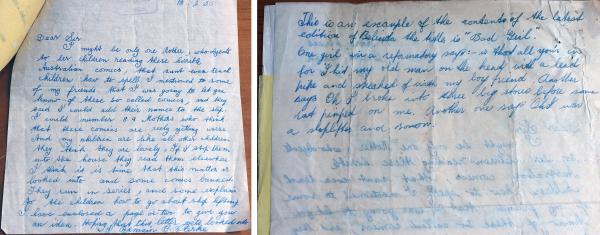
Author: Tara Oldfield
Senior Communications Advisor
‘Online description unavailable. Use the record date range (if one exists) or the consignment date range to determine if this record may be of interest or contact PROV to see if a paper listing is available.’
As at 25 November 2024, this is what appears beside all the records held within the series entitled ‘Central Registered Correspondence Files’ of the Department of Education. But not for long!
132 volunteers have spent four years working through each box of correspondence, or 259,910 letters, and making a list of descriptions that researchers will soon be able to search through to find records of interest. This has equated to 18,330 hours of work resulting in a comprehensive listing that will be invaluable to anyone researching a local town, school, teacher, or administrator.
Here, the volunteers have identified some of the records from the collection they found particularly interesting.
What to do in case of snake bite
A large cloth poster illustrated with limbs tied off with string bears the date 28 February 1877. Perhaps pinned up in school classrooms, the poster advised to find strong string to apply near the bitten part of the body to stop the circulation. Other advice included:
“The wound should then be well sucked for ten minutes by persons who have no wound, crack, sore or ulcer in their mouths, or on their lips.”
And signed by order of the Central Board of Health and secretary T. R. Wilson.
This is not dissimilar to the advice given today by Ambulance Victoria who advise to apply a pressure immobilisation bandage, though these days it is not advised to suck the venom out.
Another interesting detail on this poster is the government printer listed as John Ferres. He was appointed government printer in 1851, publishing the first Government Gazette the following year. This poster was printed a year before his first retirement. He returned to work in 1881.
Welcome flag for Duke and Duchess of York
In 1927, newsagent and stationers G. Binks & Son Pty. Ltd. Wrote to the Director of the Education Department requesting approval to sell these welcome flags to school children.
They wrote:
“We wish to advise that we have had manufactured a special flag of welcome for the visit of the Duke and Duchess to Melbourne and it is our desire to obtain your approval to offer these flags for sale to the children attending all metropolitan State Schools. We will supply the flags complete on sticks at 4/6 per dozen, while the selling price could be sixpence each…We are of the opinion that if all the children along the route of the procession were to have a uniform flag, it would add greatly to the spectacle…”
The request was denied.
International exhibition program
The Australian Federal International Exhibition was held at the Exhibition Building in Melbourne from November 1902 through to January 1903. A full copy of the printed program was included in correspondence around having the Victorian public schools represented.
The Exhibition officially opened on Friday 31 October 1902 with a musical performance signalling the start of the festivities. Displays included industrial exhibits such as furniture and carriages, pianos and typewriters. Overseas arms factories brought in their wares, as did textile makers with rugs and blankets shown. Confectionary and other food items were showcased, as were fine art collections from around the world.
The beautifully designed cover art was done by Harry J. Weston, a painter known for his striking posters and magazine covers. It is fitting that a design of his should end up in the Education Department correspondence files, as he established an art school in 1912, and later, a correspondence course for drawing.
Draft copy of The Golden Road
This 1980 draft copy of The Golden Road by Oswald Leopold Ziegler was dedicated to the children of Victoria. The main character is Robin, who with the help of Gnome, learns about industry in Victoria. The aim of the book is to promote Victorian made products.
Oswald Leopold Ziegler was a publisher, writer and photographer who published many books and magazines promoting Australian industry and landmarks.
It’s unclear if the book went on to be published, lists of Zieglers other books include The Penfold Story, Sydney Builds An Opera House and This Is Australia. But not The Golden Road.
A ‘very secret’ file
This file is secret. Very secret. It includes various correspondence to the Premier’s Department, relevant to schools, from 1939 through to the 1940s including:
- arrangements to be made for accommodating American troops at Ballarat and Bendigo, 1942
- the restriction of sending scientific and technical publications overseas which “might be of value to the enemy”
- confidential censorship rules for the guidance of the press, broadcasting stations and distributors of motion pictures.
A fascinating find for anyone researching Victoria during the World War II years.
Correspondence on providing milk to schools
A letter to the Director of Education dated 7 May 1926 states:
“Some time ago we forwarded some American Literature to your Department on serving milk to children in schools. You, no doubt, have been favourably impressed by the system as it increases the welfare of the child. We would like to bring before your notice that we have been supplying Errol Street State School with milk in bottles for the children with very beneficial results.”
This letter was accompanied by other letters, advertisements and pamphlets espousing the benefits of milk for school children. It appears trials were taking place across the country to provide milk to children at school.
A Ned Kelly excuse
One teacher of singing had a pretty good excuse for missing class in 1880.
"On Monday 28th [June 1880] I was accidentally present at the encounter with the Kellys at Glenrowan and remained all day. This fact is also my excuse for not visiting Docker’s Plains on Tuesday 29th [June] as all available vehicles or even horses were engaged by people wishing to visit Glenrowan. Hoping this explanation will be approved,
I am, Sir, your obedient servant
B J Smyth, Teacher of Singing."
This is of course in reference to the 1880 siege at Glenrowan Inn resulting in the deaths of members of the Kelly Gang and capture of Ned. The response from the Department?
"As the railway line was taken up for a short distance near Glenrowan, it is possible that he was unable (or would have been unable had he so intended) to visit Wangaratta on the 28th June, and that therefore his absence from [school] no. 643 on that day may be excused."
Comic complaints
Some debates remain the same. Are the stories our children consuming a bad influence? These days you may hear this conversation in relation to videos games, social media, movies or books in schools. Back in 1950, comics seemed to be a cause for parental concern.
Meet the Marvel Family. According to a parent, Mrs Clarke, the Marvel Family and similar comics are “really getting worse.” She asks that the comics be banned as they explain to children how to shoplift, go into detail about violence, and talk about sneaking away from home.
This 1950 correspondence is accompanied by a couple of pages of No. 27 of the Marvel Family series, as they battle the trio of terror.
The response from the Secretary of the Department?
“I have to advise you that it is beyond the power of this Department to take any action to prevent the circulation of the publications about which you complain.”
The evil effects of smoking
In 1906, Macmillan Co sent a poster outlining the “evil effects of smoking” on children to the Department. They said it is “mounted on cloth, varnished and fastened on rolls suitable for placing in schools.” They hoped it would be used throughout state schools across Victoria. The Department response was that:
“…a more suitable placard might be found than that submitted, as the warnings therein have evidently been drawn up by an extremist with elementary ideas of physiology and pathology…”
The descriptions for each of these, and other items in the series, will be added to our catalogue in the coming months. Congratulations to our volunteers on completing their work on this significant project.
Material in the Public Record Office Victoria archival collection contains words and descriptions that reflect attitudes and government policies at different times which may be insensitive and upsetting
Aboriginal and Torres Strait Islander Peoples should be aware the collection and website may contain images, voices and names of deceased persons.
PROV provides advice to researchers wishing to access, publish or re-use records about Aboriginal Peoples
















